|
Why all cows do not eat grass, or, in other words, why using mnemonics to learn to read music does not work!
When you learned piano as a child, you may have learned to identify note names using mnemonics. There are four you may have had to learn. Examples include:
For the treble clef spaces: FACE For the treble clef lines: Every Good Boy Does Fine For the bass clef spaces: All Cows Eat Grass For the bass clef lines: Good Boys Do Fine Always
Here we have four sentences to remember, the ones for the notes on the lines are confusingly similar! So not only does the student have to remember four sentences, he or she also has to remember to which clef they refer and whether they refer to line or space notes. The student also has to remember that the mnemonics all start from the bottom of the stave and go up. Are you confused yet? I am!
Now imagine you're under 10 years old - can you imagine the confusion and struggle a younger person (possibly your child) will face?
I hear many adults still using mnemonics to identify note names. If mnemonics worked, they would not have to keep referring to them. They would simply be able to name the note instantly (like we piano teachers can!). So what is it that musicians do to be able to name notes they may not come across much, for example on 3 or 4 ledger lines? We name them with reference to another note that we do know. This is called a landmark note. Enter the realm of landmark notes and reading by interval! This is the strategy that I and many of my colleagues in The Curious Piano Teachers use to teach note reading. It's also used by the tutor book Piano Safari. When reading is introduced we start with reading intervals of a second (steps) up or down from only two landmark notes; treble G and bass C. The advantage of doing things this way is that once a student can recognise and play a second, he or she can recognise and play a second written anywhere on the stave, including notes he or she can't actually name. This leads to far more fluent reading and playing as students do not need to spend time processing note names, just intervals. It also allows for a wider variety of music to be played. As students progress they learn to recognise intervals of 3rds, 5ths, 4ths and so on. Learning this way also has a profound benefit for the aural element of music exams where students have to name intervals. Did you have to do that as a child? Was it difficult? I relied on my perfect pitch in this area of the exam, not my instant recognition of the sound of an interval. In the intervallic approach, students are introduced to intervals from very early on in their learning and do not have it suddenly sprung on them a few weeks before an exam. Teaching this way is a gift to our piano students. It reminds me of the Chinese proverb 'give a man a fish and you feed him for a day. Teach a man to fish and you feed him for a lifetime'. We could just as easily change this to 'teach a student a note name and he can play one note. Teach him a landmark note and reading by interval and he can play any notes'! 'Teach a student to read one note and he can play one note. Teach him a landmark note and reading by interval and he can play any notes'!
Reading this way benefits students' sight reading because again, they are not having to process note names, just recognise and play intervals. I did not learn this way but I do teach it! I have seen for myself the benefits for students' reading and playing fluency. I know it works, not only because I see it in my students but because when I come across one of those pesky ledger line notes, if I just read the interval, I can instantly play the note!
Are you curious about landmark notes yet? Have a look at this video from Music Mind Games which shows all the landmark notes. All other notes that students up to about grade 6 will come across are less than an interval of a 4th or 5th away. So provided a student knows his or her landmark notes he or she will be able to read the music with much less of a struggle than one that reads by note name. Of course there is a place for knowing absolute note names but that is a post for another day and in the intervallic approach comes a bit later (it also doesn't use mnemonics!).
0 Comments
Over the last two weeks I've discussed the parent's and child's role in the journey, today it's the teacher's. The road to learning anything new is never smooth. There are ups and downs, struggles and joys and the teacher is there to accompany the learner through them all, the good times and the bad. Role 1 - Facilitating open communication
Role 2 - Identifying and solving problems These problems may be emotional and related to the child, or technical / musical related to the piece of music. Children arrive for their lessons in various moods and states of readiness to learn and teachers need to be able to observe and adjust their teaching to suit the child. This can be pretty hard to do as we are under time pressure and want to teach the child as much as we can in the time available, however sometimes it's just necessary to abandon the plan and go with how the child is feeling. Role 3 - Entertainer
Role 4 - Researcher As teachers we have to be endlessly curious about how we can teach 'better' (helped by ongoing professional development, for example from The Curious Piano Teachers, or membership of Facebook groups for teachers); what resources we can find for our students; which piece will suit which student; how to find a piece a student has requested that is arranged suitably for their level. Role 5 - Educator Not only do we need to educate ourselves and our students (this has been discussed in earlier posts), but we also need to educate parents. Many parents long to play instruments themselves and either didn't as a child, or did and gave up too soon and regret it, or did and became quite successful - whichever it is teachers need to let parents know what music education looks like today. It looks pretty different from what they experienced as a child or think they already know and they may not recognise it as what they want for their child. But it is what their child needs if they are to become fulfilled musicians. Music education has moved on and these days high quality music education teaches the whole child all the skills they need to be successful musicians. So children learn through movement, songs, games, rhymes, they learn to play by ear and from notation, they are encouraged to make up their own music and 'mess around' on the piano. Learning an instrument is not just learning to decipher dots someone else wrote on a page. I'm sure there are many roles that I've missed. Can you help teachers become better by identifying any more? I'll be taking a break from blogging until after Christmas. The purpose of these first posts has been to help educate readers about why music is important, what good quality music education looks like and how they can help their children succeed. In January I'll look at a different topic. A lot of parents want their child to do piano exams. I have two really important questions for you: 1) Why do you want your child to learn the piano? 2) Why does your child want to learn the piano? I wish I could have your answers before I continue writing this post, however I'll make an assumption* that you want your child:
* based on goals nearly always expressed whenever I receive a new enquiry I'll also assume your child wants to learn because he or she likes / loves music and really wants to play an instrument. I think it's unlikely you want your child to learn because you want him or her to get onto an exam treadmill where the sole purpose of playing an instrument becomes passing exams that get harder and harder and, very sadly, can have the opposite effect of what you're looking for for your child. So now we have a problem. Much instrumental tuition revolves around exams because they really are one of the only absolute ways of measuring progress. This means that parents also become exam focused because it is the only way they have been told progress can be measured, and doesn't everyone know that if you learn an instrument you 'have' to take exams. But things don't have to be like this. Following exam syllabi is very different to delivering a rounded curriculum and cannot possibly be a substitute. Even Ofsted has finally come around to the view that good exam results 'do not always mean children have received the subject knowledge they need' and the focus on exams is at the expense of 'rich and full knowledge'. Read the full article here. Children who learn using an exam focused approach often find they do not enjoy their learning, it is hard and they do not have a foundation on which to tackle harder and harder pieces. They often give up around Grade 3 or so because they just don't have the right musical foundation in place. If they are lucky enough to want to continue they tend to develop the opinion that, once they have reached Grade 8, their learning is complete and they do not need to play anymore. Rather, Grade 8 is just the start - this is when the door opens to most of the truly wonderful piano repertoire. Incidentally, I was this student. I did not have a good musical foundation, I found piano hard and would only practise for exams. Once I reached Grade 8 at age 16 I felt I was pretty much done. Fortunately I eventually fell in love with the piano and especially teaching the piano. I did course after course and practised a lot to become the piano teacher I wanted to be. I teach piano so that children can have the joyful, rich, musical experience that I did not have. Surrey Music School love students love playing piano, making music and their piano lessons, they come full of excitement for each lesson and leave full of joy. So let's return to your goals for your child.....Surrey Music School provides a a well structured curriculum where progress is clear and many areas, including creativity and self expression are developed (not just reading music and passing exams!). Teachers can also add to and adapt the curriculum so it meets additional goals they or their students may have. Exams have their place and are very useful formal benchmarks for measuring progress, however they must not become the focal point of instrumental tuition because this does not lead to the enjoyment, rounded development and the lifelong love of music you want for your child. At Surrey Music School we use exams judiciously so that they become special occasions to mark achievement and not just run of the mill yearly activities. If you would like your child to learn piano within a structured curriculum, in a group or 1:1 environment, where the focus is on developing a love of music and all round musical skills through piano playing then please do get in touch. Last week's blog discussed the benefits of music teaching but raised the fact that the benefits do not occur when the teaching is unstructured and poor quality. Read on to find out what bad music teaching looks like and discover what makes good music teaching.
The Kodaly approach to music teaching is very similar to how children learn to speak. As babies they listen and begin to explore the sounds they can make. As they grow they start imitating words they hear and finally they begin to put words together to make their own sentences. Imagine if they were not allowed to make any sounds until they first learned to read! It sounds ridiculous however this is what 'traditional' music teaching expects. With no musical foundation children are expected to interpret musical symbols - is it any wonder that they struggle and don't enjoy it. What did your music lessons look like? Did you learn through songs and games, developing your musical skills away from your instrument or were you a victim of traditional teaching and expected to somehow 'know' all these things without being taught? Next week's blog looks at the importance of teaching musical skills and concepts within a framework; so that the learning is structured and progress can be measured other than using exams. In the meantime if you're interested in reading more about the damage that traditional piano teaching causes why not check out this excellent article 'How Traditional Piano Lessons Cripple Our Children'.
Listening to and making music is a wonderful experience, with many benefits. Read on to discover them and learn about the health warning that can negate the benefits. a) Music reshapes the brain
b) Musical training helps progress 'Children who experience musical training have an advantage across all subjects except sport'
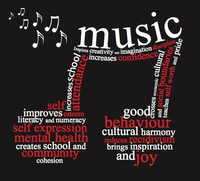 c) Music has a direct link to our emotions ‘It reaches the parts of the brain other things can’t do’.
 But, what about the teaching? All the benefits come with a vital health warning: 'If the quality of music tuition is poor and unstructured there is no impact' Even worse, the impact of poor music tuition goes even deeper and may have: 'negative outcomes' Next week we describe what good music teaching looks like to help you find a teacher and approach that will deliver the benefits music can bring when done well. What has your experience been of music lessons? |
Caroline BlountDirector of Surrey Music School. Archives
January 2024
Categories
All
|

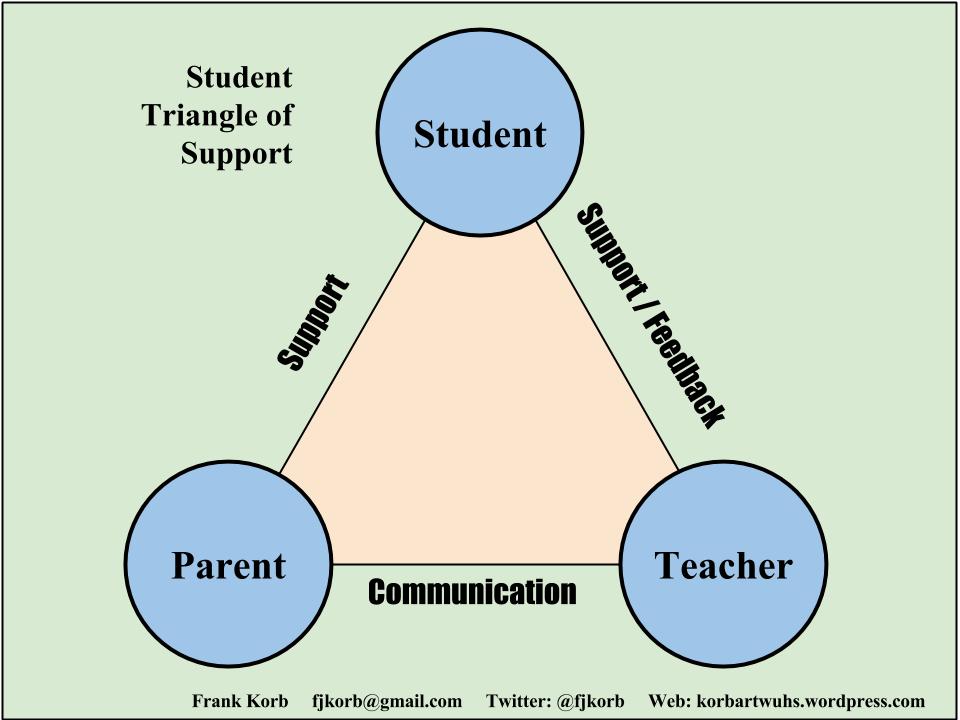
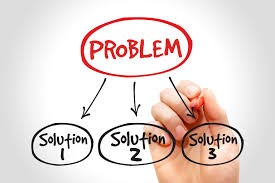
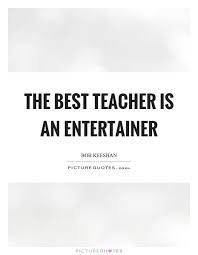
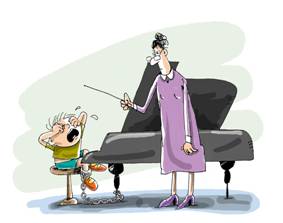
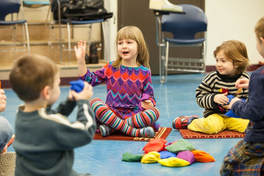
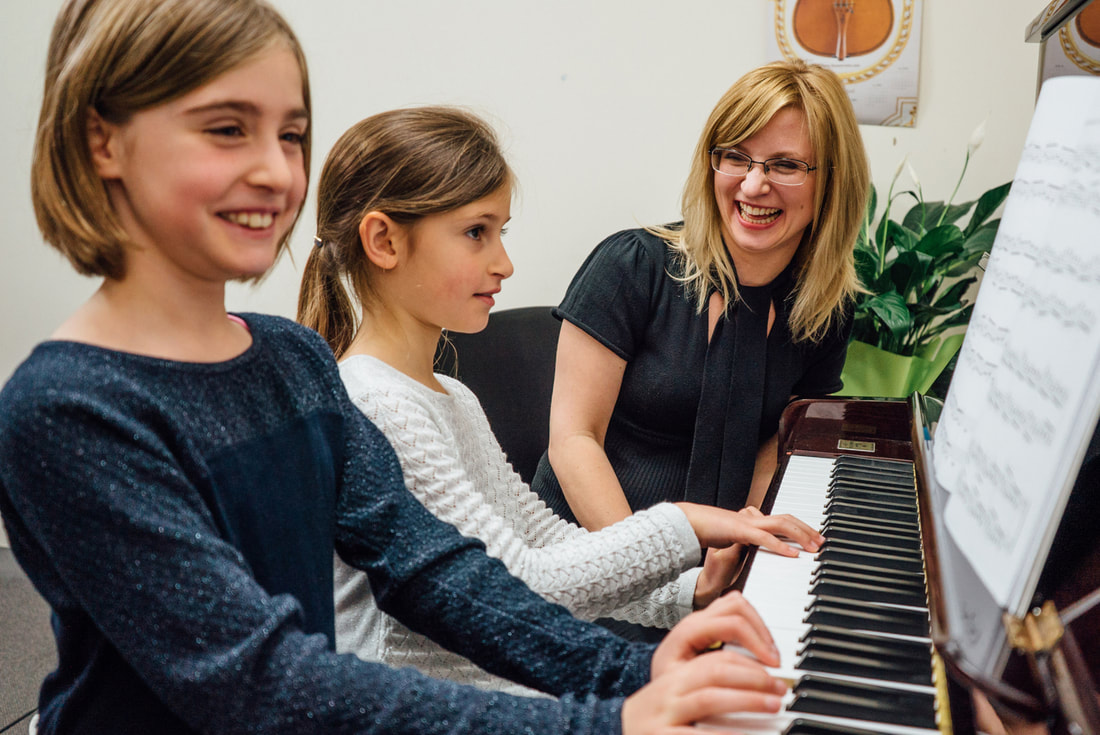
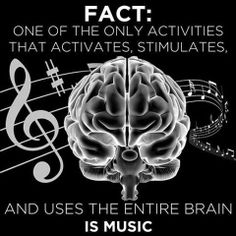

 RSS Feed
RSS Feed